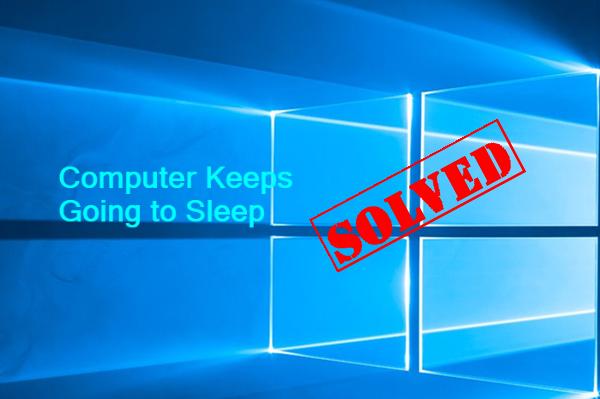
Computer keeps going to sleep? Don’t worry. This is one of the common issues in Windows 10 and Windows 7. You can fix it easily with one of the solutions below.
We’ve put together five solutions below for you to fix the problem. You may not have to try them all; just work your way down until you find the one that works for you.
- Check the power settings
- Update the graphics card driver
- Disable the screen saver
- Change the System unattended sleep timeout to a longer time
Solution 1: Check the power settings
If your power settings are configured to sleep in a short time, for example, 5 minutes, you’ll experience the computer keeps going to sleep issue. To fix the problem, the first thing to do is check the power settings, and change the settings if necessary. To do so:
- On your keyboard, press the Windows logo + R keys simultaneously to open the Run box.
- Type control panel and press Enter.
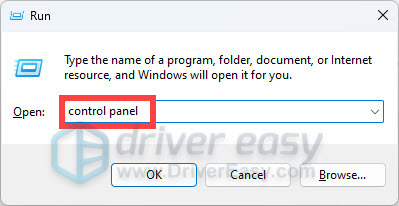
- View by Large icons, and click Power Options.
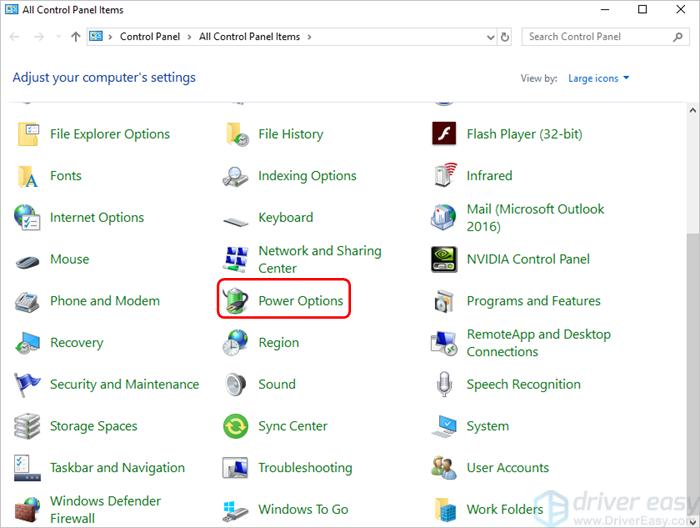
- Click Change when the computer sleeps in the left pane.
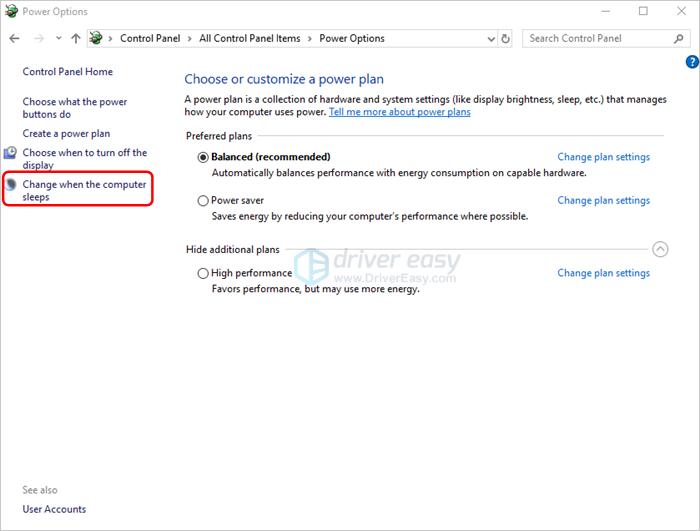
- Choose the sleep and display settings that you want your computer to use.
4a) Change the Turn off the display setting to whatever value you desire. You don’t have to set it to Never if you don’t want to.
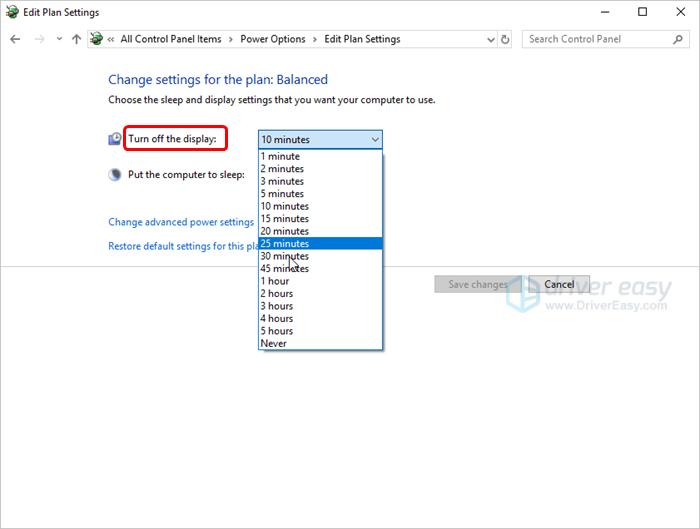
4b) Change the Put the computer to sleep setting to whatever value you desire. It’s recommended to set it to Never.
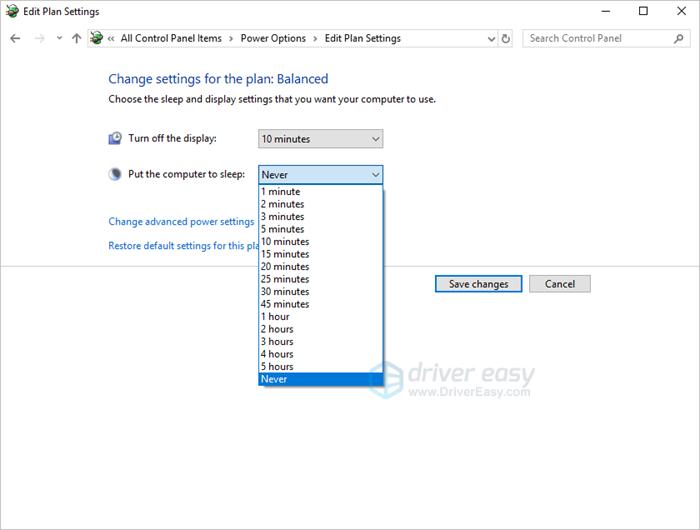
- Click Save changes.
- Check to see if the computer still keeps going to sleep.
Solution 2: Update the graphics card driver
The computer keeps going to sleep issue can be caused by the faulty or outdated graphics card driver, especially if you have a high-end graphics card installed. To fix the problem, you can try to update the graphics card driver.
If you don’t have the time to update the graphics card driver manually, you can do it automatically with Driver Easy. Driver Easy will automatically recognize your system and find the correct drivers for it. You don’t need to know exactly what system your computer is running, you don’t need to risk downloading and installing the wrong driver, and you don’t need to worry about making a mistake when installing.
You can update your drivers automatically with either the FREE or the Pro version of Driver Easy. But with the Pro version, it takes just 2 clicks (and you get full support and a 30-day money-back guarantee):
- Download and install Driver Easy.
- Run Driver Easy and click Scan Now. Driver Easy will then scan your computer and detect any problem drivers.

- Click the Update button next to a flagged graphics card driver to automatically download the correct version of this driver, then you can manually install it (you can do this with the FREE version).
Or click Update All to automatically download and install the correct version of all the drivers that are missing or out of date on your system (this requires the Pro version – you’ll be prompted to upgrade when you click Update All).
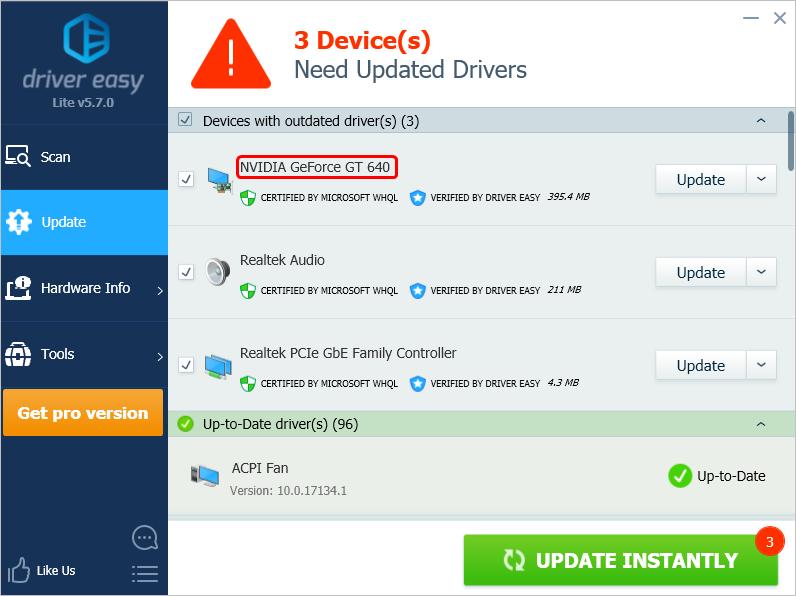
- Check to see if your computer keeps going to sleep.
Solution 3: Disable the screen saver
The screen saver is the utility built in Windows. It will be activated after a certain period of Windows inactivity. If the screen saver is set to blank, and the wait time is 5 minutes, it’ll look like your screen has turned off or gone to sleep mode. So you can disable the screen saver and see if the problem persists.
You can follow the steps below to disable the screen saver. The steps depend on the Windows version your computer is running. We show the steps for Windows 10 and Windows 7 below.
For Windows 10:
- Press
Win+R(the Windows logo key and the R key) on your keyboard to bring up the Start menu. - Type lock screen settings in the search bar and select Lock screen settings.
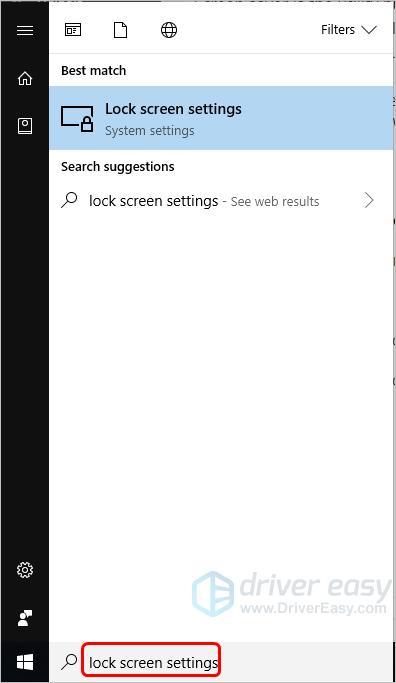
- Click Screen saver settings at the bottom of the window.
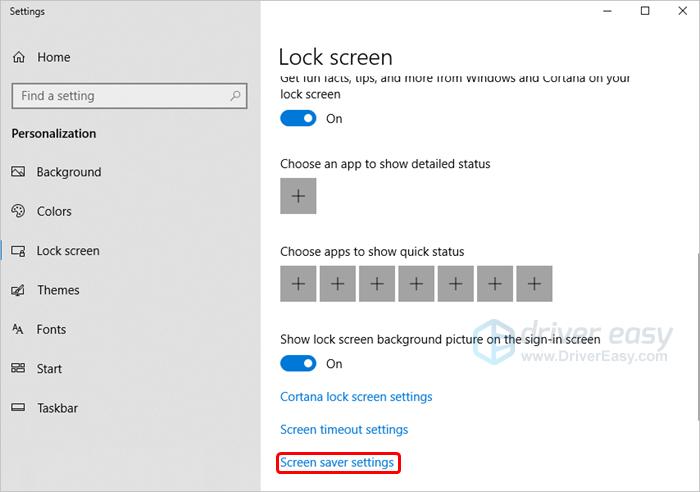
- Set Screen saver to None.
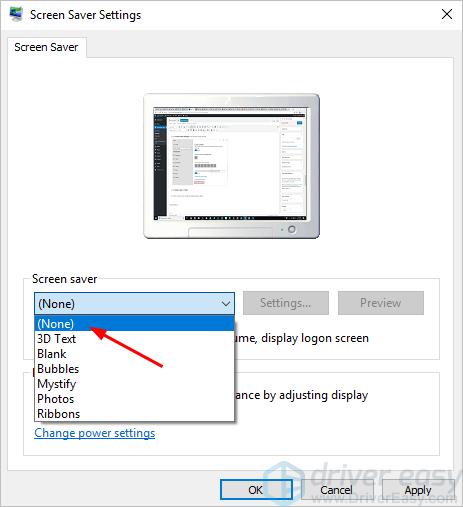
- Check to see if your computer keeps going to sleep.
For Windows 7:
- Open Control Panel.
- View by Category, and click Appearance and Personalization (In some cases, this could be Appearance.).
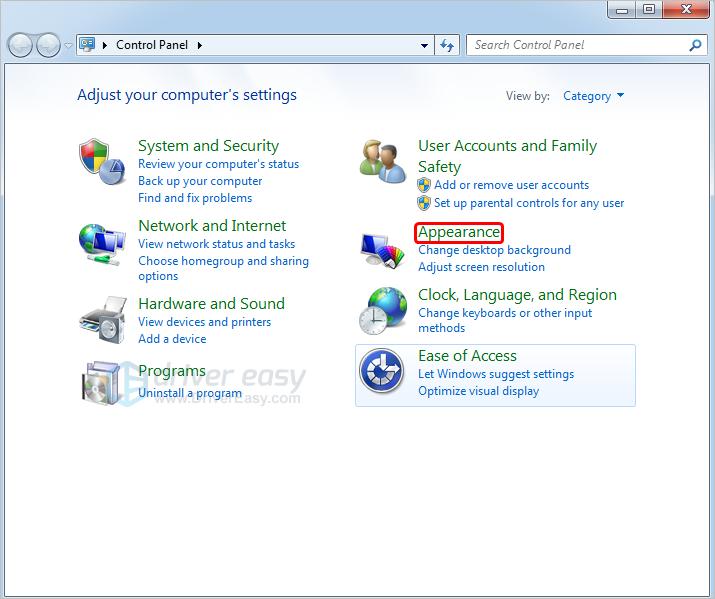
- Click the Change screen saver button.
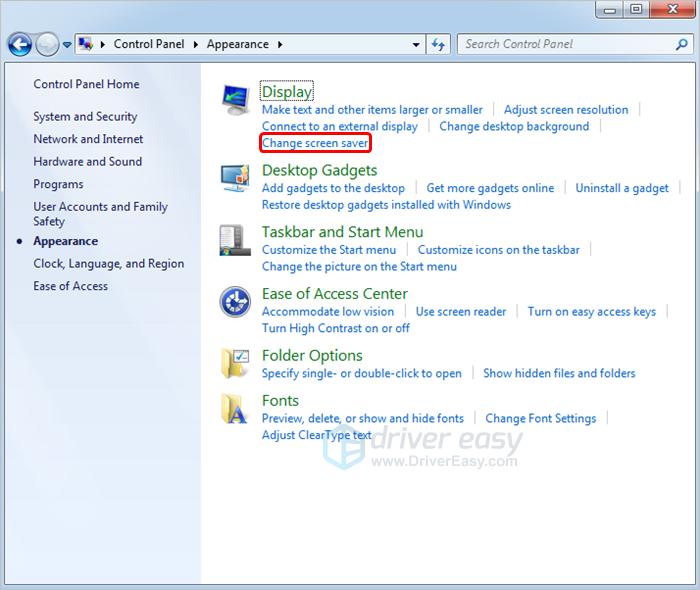
- Set Screen saver to None.
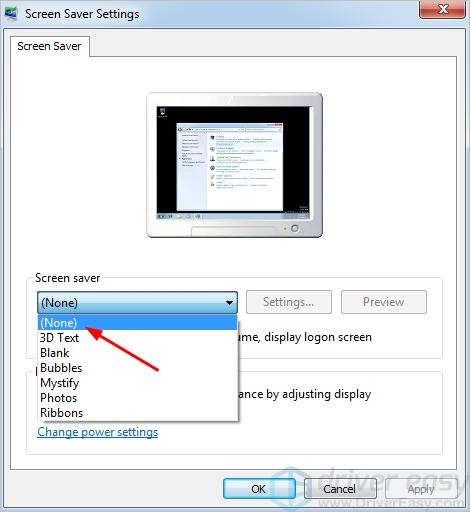
- Check to see if your computer keeps going to sleep.
Solution 4: Change the System unattended sleep timeout to a longer time
If the above solutions don’t work for you, you can try to set the System unattended sleep timeout to a longer time. The option is invisible in Windows by default. You need to edit the registry to make it visible first, then you can reset the period.
Firstly, edit the registry to make the System unattended sleep timeout option visible.
- Open Registry Editor.

1a) On your keyboard, press the
Win+R(the Windows logo key and the R key) at the same time to invoke the Run box.
1b) Typeregeditand click OK. Then the Registry Editor window will pop up. - Navigate to the following directory:
[HKEY_LOCAL_MACHINE\SYSTEM\CurrentControlSet\Control\Power\PowerSettings\238C9FA8-0AAD-41ED-83F4-97BE242C8F20\7bc4a2f9-d8fc-4469-b07b-33eb785aaca0]
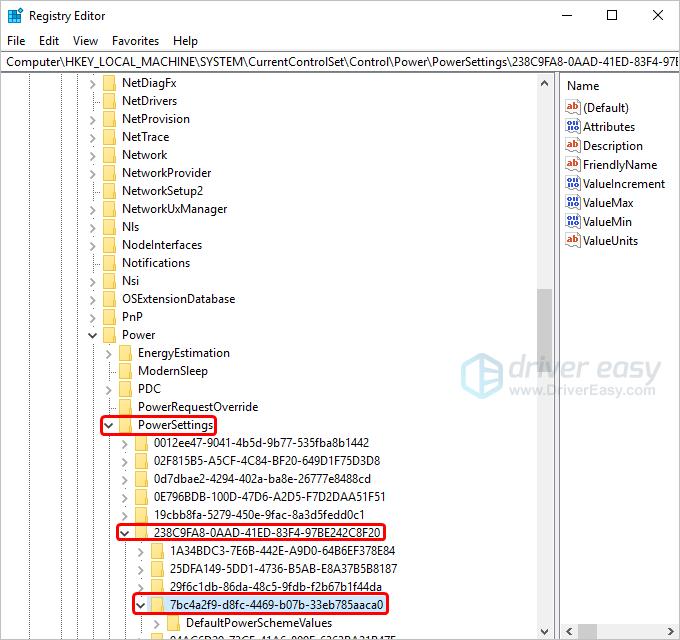
- In the right pane, double-click on Attributes to modify it.
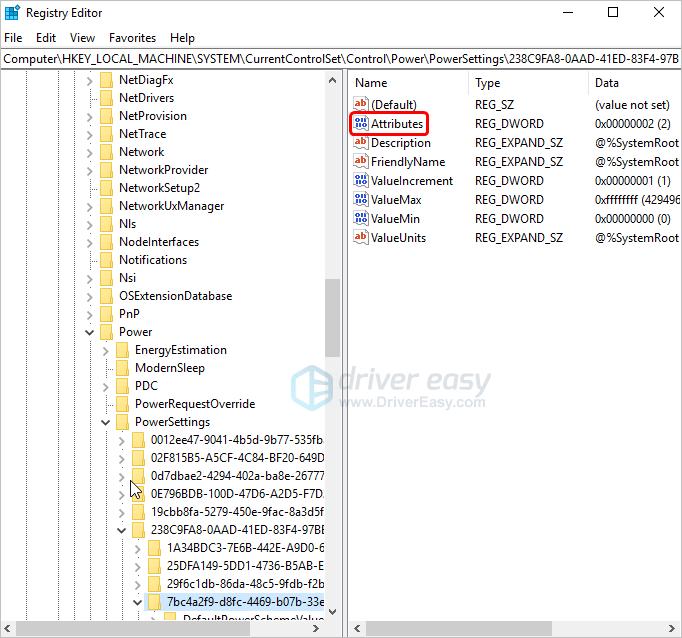
- Change the Value data to 2. The default Value data is probably 1. Whatever the Value data is, just change it to 2.
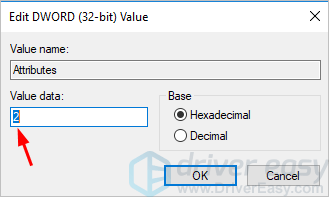
- Click the OK button.
- Exit the Registry Editor.
Secondly, reset the System unattended sleep timeout period.
- Open Control Panel again.
- View by Large icons, and click Power Options.
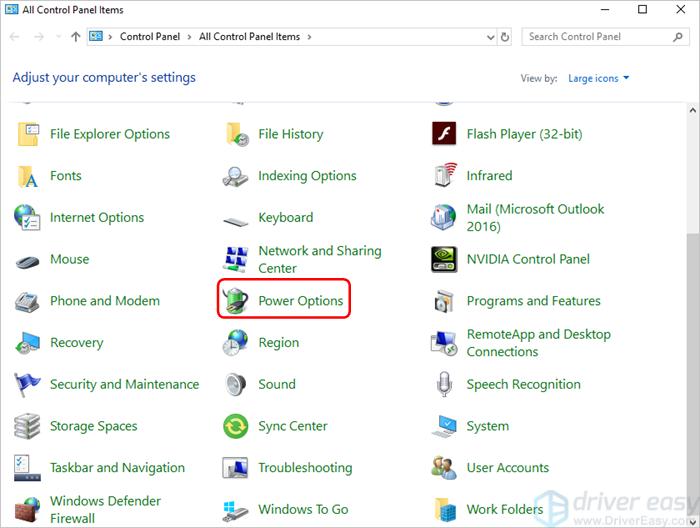
- Click the Change plan settings under your selected power plan.
In my case, the selected settings is Balanced, so I click on Change plan settings next to it.
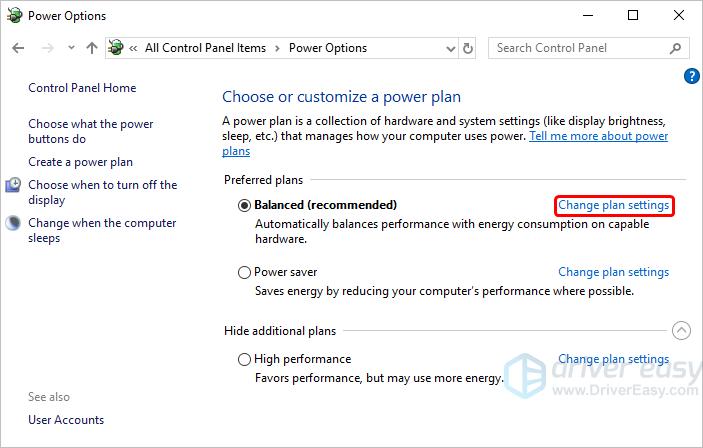
- Click on Change advanced power settings.
- Expand the entry Sleep, then expand the entry System unattended sleep timeout. The value for this setting will probably be set to 2 minutes – change it to a longer time, for example, 30 minutes.
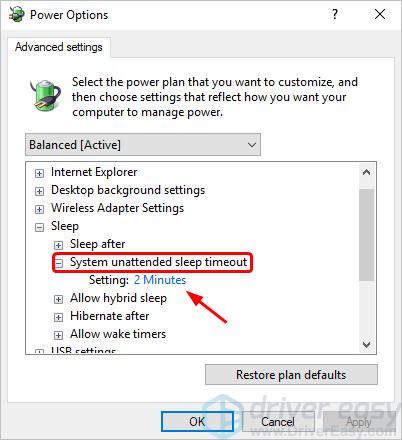
- Click OK to save the changes.
- Check to see if the computer keeps going to sleep.
Hopefully, the solutions above help you resolve the computer keep-going-to-sleep problem. If you have any questions, ideas, or suggestions, feel free to leave your comments.





